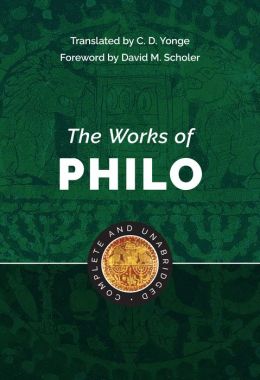For instance,
many have a difficult time ascertaining what is being said when they see the
word “god” (see the article God, god and gods); they think they know what this
means. This can vary as well depending on which translation you read (as there
have been corruptions and dogma perpetrated into the text). As N.T. Wright put it:
“in what sense, if any, can we meaningfully use the word ‘god’ to talk about the human Jesus, Jesus as he lived, walked, taught, healed, and died in first century Palestine…what happens to our sense of the identity of God when we allow our long historical look at Jesus to influence what we mean by the endlessly fascinating word? When people ask 'Was Jesus God?' they usually think they know what the word ‘God’ means, and are asking whether we can fit Jesus into that. I regard this as deeply misleading…For seven years I was College Chaplain and Worcester College, Oxford. Each year I used to see the first year undergraduates individually for a few minutes, to welcome them to the college and make a first acquaintance. Most were happy to meet me; but many commented, often with slight embarrassment, ‘You won’t be seeing much of me; you see, I don’t believe in god.’ I developed stock response: ‘Oh, that’s interesting; which god is it you don’t believe in?’ This used to surprise them; they mostly regarded the word ‘God’ as a univocal, always meaning the same thing. So they would stumble out a few phrases about the god they said they did not believe in: a being who lived up the in the sky, looking down disapprovingly at the world, occasionally ‘intervening’ to do miracles, sending bad people to hell while allowing good people to share his heaven. Again, I had a stock response for this very common statement of ‘spy-in-the-sky’ theology: ‘Well, I’m not surprised you don’t believe in that god. I don’t believe in that god either.’ At this point the undergraduate would look startled. Then, perhaps, a faint look of recognition; it was sometimes rumored that half the college chaplains at Oxford were atheists. ‘No,’ I would say; ‘I believe in the god I see revealed in Jesus of Nazareth.’ What most people mean by “god” in late-modern western culture simply is not the mainstream Christian meaning.”
Philo
was a Jewish philosopher who lived in Alexandria Egypt (a center for Hellenism)
from 20 B.C.E to 50 C.E. Many of his writings are preserved and he gives us
many details (from a Hellenistic perspective) of thought during his day and
age. Philo is also a Jew, so his perspective of men and the God of Israel is
interesting to say the least. Did Philo know who the “God” (elohim) of Israel
was? He had the same Scriptures that the disciples and even Jesus himself had.
He has a lot of interesting things to say (although I am far from having made
an exhaustive examination of his writings). This particular segment fascinated
me. Look at what he said about Moses (in relation to Moses being called “god”
in Ex. 7):
“What more shall I say? Has he not also enjoyed an even greater communion with the Father and Creator of the universe, being thought unworthy of being called by the same appellation? For he also was called the god and king of the whole nation, and he is said to have entered into the darkness where God was; that is to say, into the invisible, and shapeless, and incorporeal world, the essence, which is the model of all existing things, where he beheld things invisible to mortal nature; for, having brought himself and his own life into the middle, as an excellently wrought picture, he established himself as a most beautiful and Godlike work, to be a model for all those who were inclined to imitate him.” The works of Philo: Complete and unabridged p. 474, Peabody: Hendrickson.
Is this
not interesting? Does this mean that Philo believed Moses to be the God of
Israel, Almighty Yahweh Himself? Absolutely not! If Philo believed Moses to be
the “One true God of Israel”, how could this “One true God of Israel” enter
into the presence of the “One true God of Israel”? It makes no sense. Philo
knew what the word “elohim” (god) represented, and used a Hebraic projection of
language to describe certain elements of Moses' “divine” authority and anointing.
The same
is true for Jesus of Nazareth (which is why he is called the prophet like Moses,
see article Prophet Like Moses). He is the “god and king of the nation” (see
article Worship the LORD and the King). He comes in the “name” of God (Yahweh,
the Lord; Ps. 118:26, Mt. 11:3, Mt. 21:9, Mt. 23:39, Mk. 11:9, Lk. 7:19, Lk. 13:35, Lk. 19:38, Jn. 6:14, Jn. 11:27, Jn. 12:13, Heb. 10:37). That does not mean he is Yahweh. If that were the case,
how could he come before the Ancient One (Yahweh) in Daniel 7 (based on the knowledge that Jesus claimed to be the “son
of man” from the vision in Daniel 7)?
Examples such as this could be multiplied. This particular example is part of
the divine (heavenly) council (court) imagery, which is a massive examination
that is found all through the Hebrew Scriptures, New Testament as well as
apocryphal and pseudepigrapha works. Instead of making irrational assumptions about
certain words and individuals that destroy sound biblical exegesis (and true
biblical theology), perhaps we should dig a little deeper into the mind and way of the Hebrews.


No comments:
Post a Comment